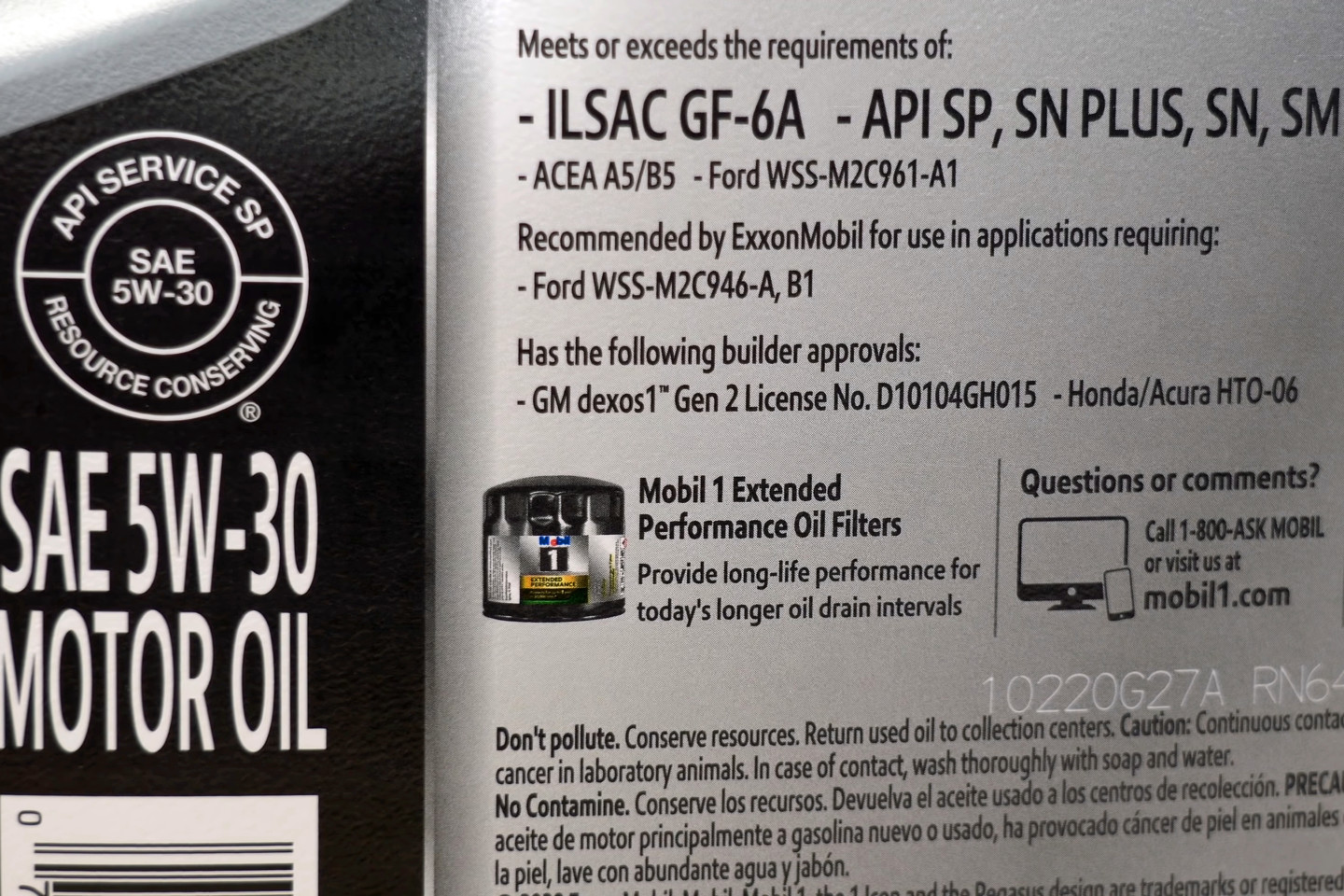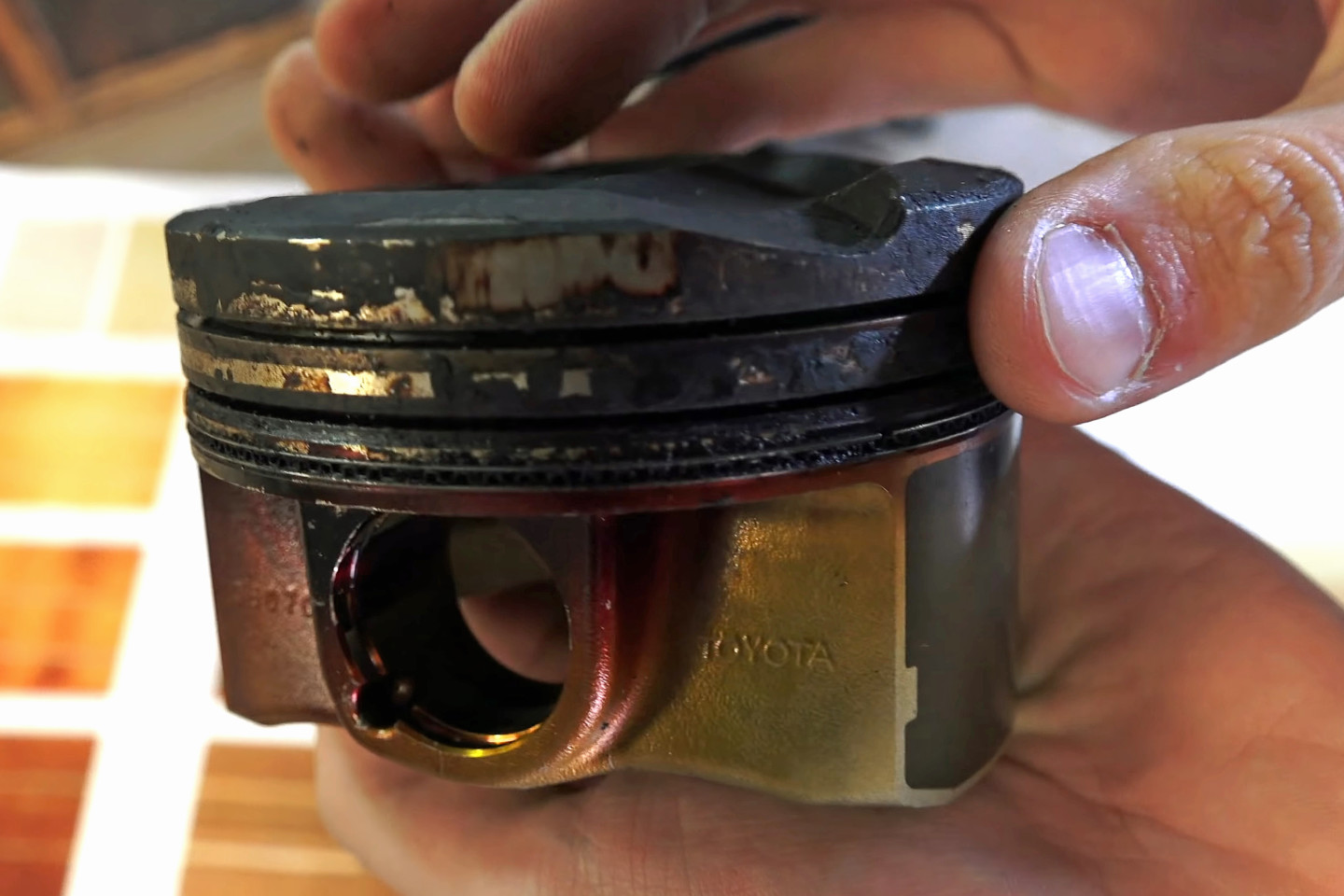Chances are you’ve probably heard, at some point in your lifetime, not to use synthetic oil in an older engine. “Switching to synthetic oil will cause your engine to leak,” the “experts” like to say. When pressed for how they came to that conclusion, you’ll usually get the “My cousin’s nephew’s roommate’s best friend had it happen to them” line. Even if you get someone with personal experience, there’s a real chance they have some outlandish theory on why the synthetic oil caused a leak, where a conventional oil didn’t.
Luckily, Jason Fenske of Engineering Explained takes an interest in exploring and explaining such things. “Synthetic oils are nothing new. They have been around for commercial use in the automotive industry since the 1970s,” says Fenske. “The more interesting part of the discussion is where the idea came from, that you can’t use synthetics in older cars.”
One thing Fenske does admit about the idea is that it does come from experience. It’s not like people just set out to conspire against synthetic oil one day. So, like many of the most pervasive old wives’ tales, it started with an element of truth to it. “Some of the early synthetic motor oils were ester-based and some engine seals are ester-based, and there’s a compatibility there,” says Fenske.
The esters can cause swelling of engine seals and a little bit can actually be a good thing. But, if the ester concentration of the oil is too high, you can get excessive swelling, a drop in the seal’s hardness, or a reduction of its tensile strength. That’s what happened” Those outdated synthetic oil formulations did, in fact, cause excessive degradation of the seals, which led to oil leaks.

Like most pervasive myths, the idea that synthetic oil can cause leaks could have been rooted in truth decades ago. Nowadays, however, as long as a synthetic oil is certified to meet all of the standards here, you can rest assured it’s completely safe to use in your engine, old or new.
“These days, there is all kinds of testing done to ensure compatibility so that leaks don’t occur because of oil breaking down the engine seals,” explains Fenske. “If an oil has all the proper certifications, you don’t have to worry about its compatibility with your engine’s seals, and running a synthetic oil in your engine is no problem.
Now, there is also the pervasive claim that switching to a synthetic, with all of its detergents and cleaners, can wash away leak paths that were previously sealed with engine gunk. “It’s true that synthetics can have higher concentrations of dispersants and detergents, and other cleaning elements, but cleaning your engine is never a bad thing,” says Fenske.
“If your engine has a leak, that’s obviously a problem. However, sludge and gunk building up around that leaky seal is not a solution; it’s just another problem. Using sludge as the solution will cause your engine to fail sooner so that it won’t leak oil.” Fenske does contend that one of the old “common knowledge” facts is actually true.
“If your engine is burning or consuming a lot of oil, should you use a thicker oil? That one might not actually be a bad idea,” says Fenske. “As we all know, engines don’t last forever. Wear happens, and as you have wear occurring, it can change the clearances within an engine. As the clearances within the engine increase, the original viscosity of oil recommended for the engine might be too thin to take up the additional space between the bearings and journals.”

If you are relying on gunk buildup or carbon deposits to seal up any engine leaks you might have, that’s like fixing a radiator with bubble gum or an egg.
Fenske does warn though, increasing the viscosity of your oil shouldn’t be done just because you have an older engine, but rather as a last line of defense to increase the service life of an engine that is clearly on its way out. He also mentions that increasing viscosity in an attempt to get leaks to stop, isn’t sound rationale.
“If there is a passageway or seal that oil is leaking through, the difference in viscosity at operating temperature is too small to affect whether or not oil can slip by. The leak is going to continue to leak. The problem is that you have a failed seal, not that the oil is the wrong viscosity.”
Fenske concludes with the following statement. “So to sum up, you absolutely can use synthetic oils in older engines. No, modern synthetic oils will not cause leaks. Yes, you can bump up the viscosity of your oil to help a worn engine with low oil pressure.” Also, be sure to watch until the end of the video, if at any point in this article, the thought: “Yeah, but rotaries…” popped into your head.


















